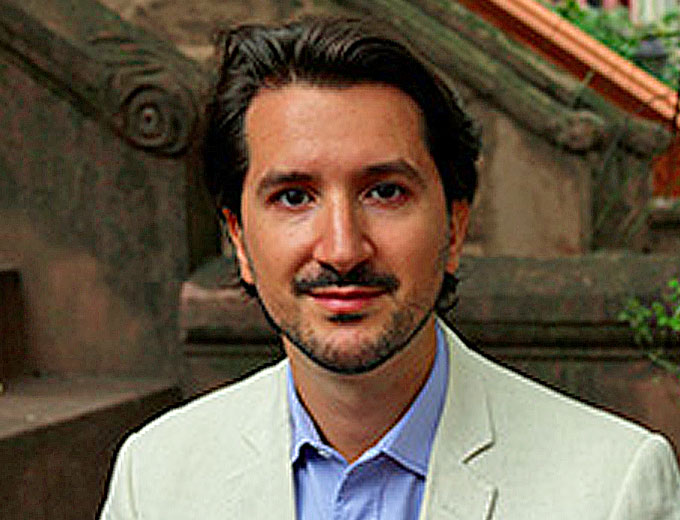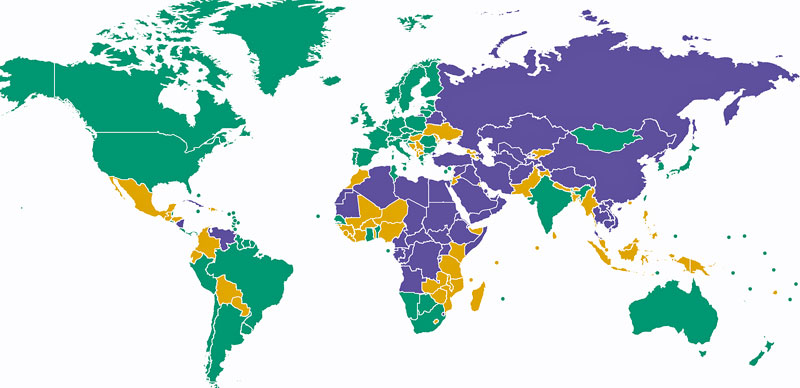
Governments around the world are increasingly using social media to manipulate elections and monitor their citizens, tilting the technology toward digital authoritarianism.
As a result of these trends, global internet freedom declined for the ninth consecutive year, according to Freedom on the Net 2019, an independent watchdog organization that supports democratic change, monitors the status of freedom around the world, and advocates for democracy and human rights.

Their latest edition of the annual country-by-country surveillance report, titled ‘The Crisis of Social Media‘, was released on Tuesday by Freedom House.
Adding to the problem of meddling by foreign regimes, a new menace to democracy has risen from within, as populist leaders and their armies of online supporters seek to distort politics at home.
Domestic election interference marred the online landscape in 26 of the 30 countries studied that held national votes over the past year.
Disinformation was the most commonly used tactic. Authorities in some countries blocked websites or cut off access to the internet in a desperate bid to cling to power.
“Many governments are finding that on social media, propaganda works better than censorship,” explains Mike Abramowitz, president of Freedom House.
“Authoritarians and populists around the globe are exploiting both human nature and computer algorithms to conquer the ballot box, running roughshod over rules designed to ensure free and fair elections.”
(Hear Directly from Mike Abramowitz, president of Freedom House following the release of Freedom House Report ‘Freedom in the World 2018.’ Courtesy of Freedom House and YouTube. Posted on Feb 26, 2018.)
Governments from across the democratic spectrum are indiscriminately monitoring citizens’ online behavior to identify perceived threats—and in some cases to silence opposition.
Freedom House has found evidence of advanced social media surveillance programs in at least 40 of the 65 countries analyzed.
“Once reserved for the world’s most powerful intelligence agencies, big-data spying tools are making their way around the world,” added Adrian Shahbaz, Freedom House’s research director for technology and democracy.
“Advances in AI are driving a booming, unregulated market for social media surveillance.”
“Even in countries with considerable safeguards for fundamental freedoms, there are already reports of abuse.”
(Learn More. See a summary presentation by Adrian Shahbaz of the “Freedom on the Net 2018” report by Freedom House, from the West Coast launch of the report, hosted by Stanford’s Global Digital Policy Incubator on November 5, 2018. Courtesy of Stanford CDDRL and YouTube. Posted on Nov 25, 2018.)
The proliferation of sophisticated monitoring tools has reduced people’s ability to freely express themselves and be civically active online.
Of the 65 countries assessed in this report, a record 47 featured arrests of users for political, social, or religious speech.
“The future of internet freedom rests on our ability to fix social media,” said Shahbaz.
“Since these are mainly American platforms, the United States must be a leader in promoting transparency and accountability in the digital age.”

“This is the only way to stop the internet from becoming a Trojan horse for tyranny and oppression.”
Freedom on the Net 2019 assesses internet freedom in 65 countries that account for 87 percent of internet users worldwide.
The report focuses on developments that occurred between June 2018 and May 2019, though some more recent events are included.
Key Findings Include:
Declines outnumber gains for the ninth consecutive year
-
Since June 2018, 33 of the 65 countries assessed in Freedom on the Net experienced a deterioration in internet freedom.
-
The biggest score declines took place in Sudan and Kazakhstan, followed by Brazil, Bangladesh, and Zimbabwe.
-
Improvements were measured in 16 countries, with Ethiopia recording the largest gains.
Internet freedom declines in the United States
-
US law enforcement and immigration agencies increasingly monitored social media and conducted warrantless searches of travelers’ electronic devices, with little oversight or transparency.
-
In a number of troubling cases, the monitoring targeted constitutionally protected activities such as peaceful protests and news-gathering.
-
Disinformation was again prevalent around major political events, spread increasingly by domestic actors.

China is the world’s worst abuser of internet freedom for the fourth consecutive year
-
Censorship reached unprecedented extremes in China as the government enhanced its information controls ahead of the 30th anniversary of the Tiananmen Square massacre and in the face of persistent antigovernment protests in Hong Kong.
Digital platforms are the new battleground for democracy
-
Domestic state and partisan actors used propaganda and disinformation to distort the online landscape during elections in at least 24 countries over the past year, making it by far the most popular tactic for digital election interference.
-
Often working in tandem with government-friendly media personalities and business magnates, semiautonomous online mobs transmitted conspiracy theories, inflammatory views, and misleading memes from marginal echo chambers to the political mainstream.
Governments harness big data for social media surveillance

-
In at least 40 out of 65 countries, authorities have instituted advanced social media monitoring programs.
-
These sophisticated mass surveillance systems can quickly map users’ relationships; assign a meaning to their social media posts; and infer their past, present, or future locations.
-
Machine learning enables the programs to find patterns that may be invisible to humans, and even to identify whole new categories of patterns for further investigation.
Free expression is under assault
-
A record high of 47 out of 65 countries featured arrests of users for political, social, or religious speech.
-
Individuals endured physical violence in retribution for their online activities in at least 31 countries.
Authorities normalize blanket shutdowns as a policy tool
-
Social media and communication applications were blocked in at least 20 countries, and telecommunications networks were suspended in 17 countries, often in the lead-up to elections or during protests and civil unrest.
More governments enlist bots and fake accounts to manipulate social media.
-
Political leaders employed individuals to surreptitiously shape online opinions and harass opponents in 38 of the 65 countries covered in this report—another new high.

















